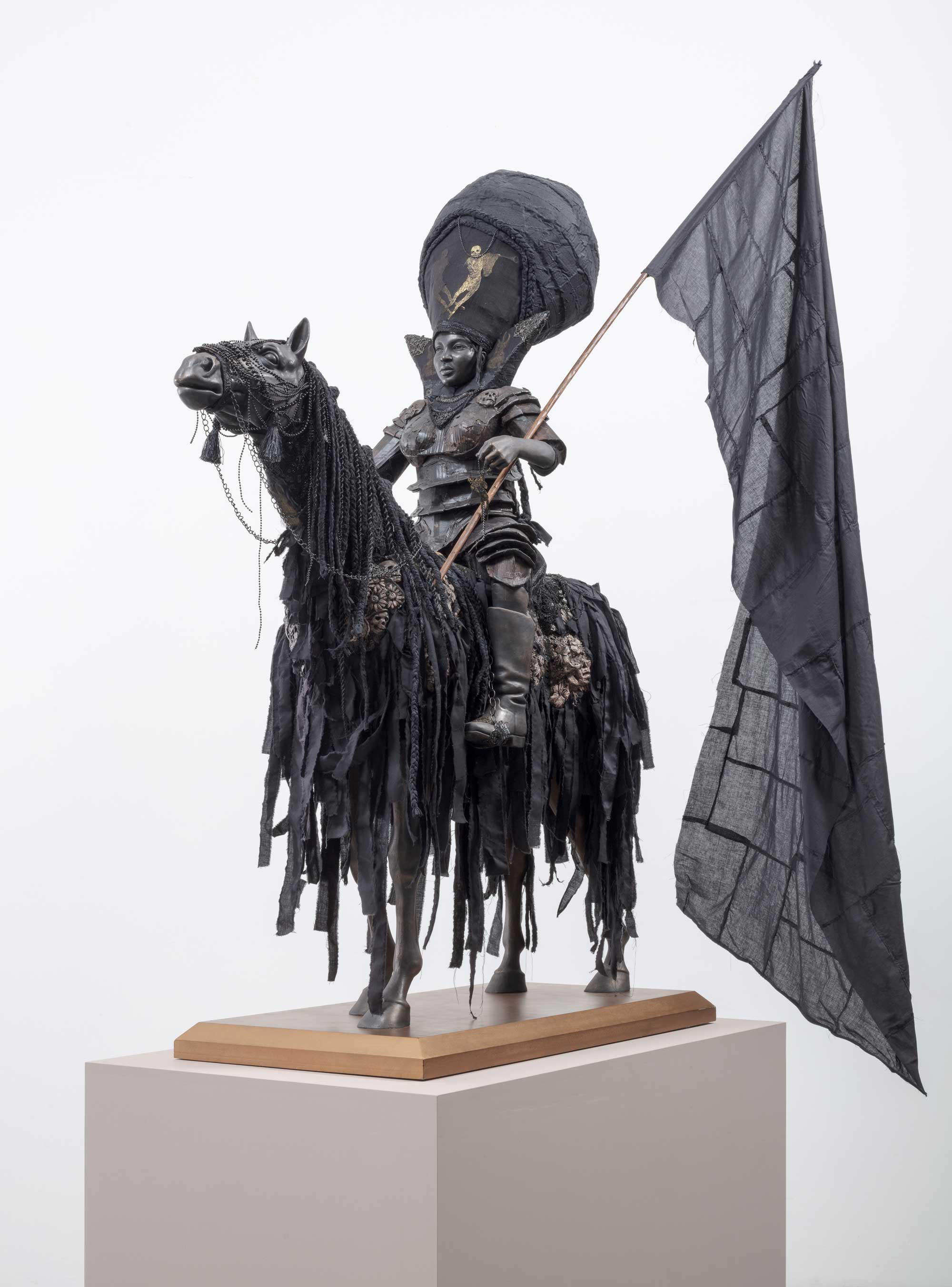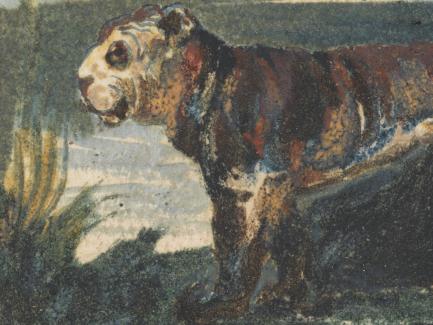For the past thirty years, Guyanese-British artist Hew Locke (b. 1959) has used strategies of appropriation to reveal and upend the visual codes of imperialism. Incorporating multiple media, including sculpture, photography, drawing, and found objects, Locke’s oeuvre has been described as a “postcolonial baroque” that deconstructs and reimagines deeply entrenched iconographies of British sovereignty. His rich, dense, highly textured, and multilayered attention to materiality fuses vernacular and formal traditions influenced by his British and Guyanese heritage.
Spanning his career from the late 1990s to the present, this exhibition showcases the full spectrum of Locke’s practice. It brings together distinct bodies of work that examine the historical processes of colonialism through the present-day legacies of global market capitalism, migration, and diaspora. Key themes include public statuary, portraiture, ships, boats, and architecture, expressed through Locke’s constantly evolving use of materials and their associated status and meanings.
Born in 1959 in Edinburgh, Scotland, Locke moved with his family to Georgetown, Guyana, in 1966—in time to witness the colony declare its independence from Britain. Locke returned to Britain in 1980 and emerged as an artist during the highly politicized environment of Margaret Thatcher’s Conservative government. He received a BA in fine art from Falmouth School of Art in 1988, and an MA in sculpture from the Royal College of Art, London, in 1994. He lives and works in London.
Access the large-print labels here.
View the brochures here.
Accompanying Publication
Published by the Yale Center for British Art, and distributed by Yale University Press, Hew Locke: Passages offers the first comprehensive examination of the innovative career of an artist renowned for his multimedia explorations of colonial and postcolonial power. This richly illustrated catalogue is the first to showcase the full spectrum of Locke’s practice.
Co-edited by Martina Droth and Allie Biswas, the book includes essays from leading curators, critics, and scholars that situate Locke’s work within the context of colonial and postcolonial history and theory.
Related Programs
Book Discussion | Hew Locke: Passages
Tuesday, October 7, 12–12:45 pm
Hew Locke will be in conversation with Allie Biswas, coeditor, of the publication Hew Locke: Passages. Copies of the book, presigned by the artist, will be available for purchase for $75.
Artist Talk: Hew Locke
Thursday, October 9, 5:30–6:30 pm
Hew Locke talks with Martina Droth, Paul Mellon Director, YCBA, and curator of the exhibition, about his artistic practice and insights into his work.
Create Community: Imagined Worlds in the Art of William Blake and Hew Locke
Thursdays, October 2, 16, and 23, 5:30–6:45 pm
This three-part workshop will explore William Blake: Burning Bright and Hew Locke: Passages through a close investigation of material and process. Enrollment is limited to twelve people, and preregistration is required.
Hew Locke’s Guyana: Climate Crisis
Wednesday, December 3, 4–5 pm
Join Jemma Field, Associate Head of Research, YCBA, and Claire Hoffmann, Head of Partnerships at the Yale Center for Biodiversity and Global Change, as they discuss how Locke’s art engages with themes of climate vulnerability, resource extraction, and resilience in one of the world’s most biodiverse nations.
Reflections on “Hew Locke: Passages”
Saturday, January 10, 2–3:30 pm
Celebrate the final days of Hew Locke: Passages with performances by Yale faculty and students that respond to the exhibition.
Curator Tours
Thursdays, October 16, November 6, December 11, 4 pm
Docent Tours
Sundays, 1 pm
Top image
Hew Locke, Ambassador 4, detail, 2022, glass fiber, plastic, jesmonite, aluminium, synthetic fabric, cardboard, leather, brass, wood, synthetic fiber, acrylic paint, and mixed media, Yale Center for British Art © Hew Locke. All rights reserved. Photography: John Hammond
Extended reading













